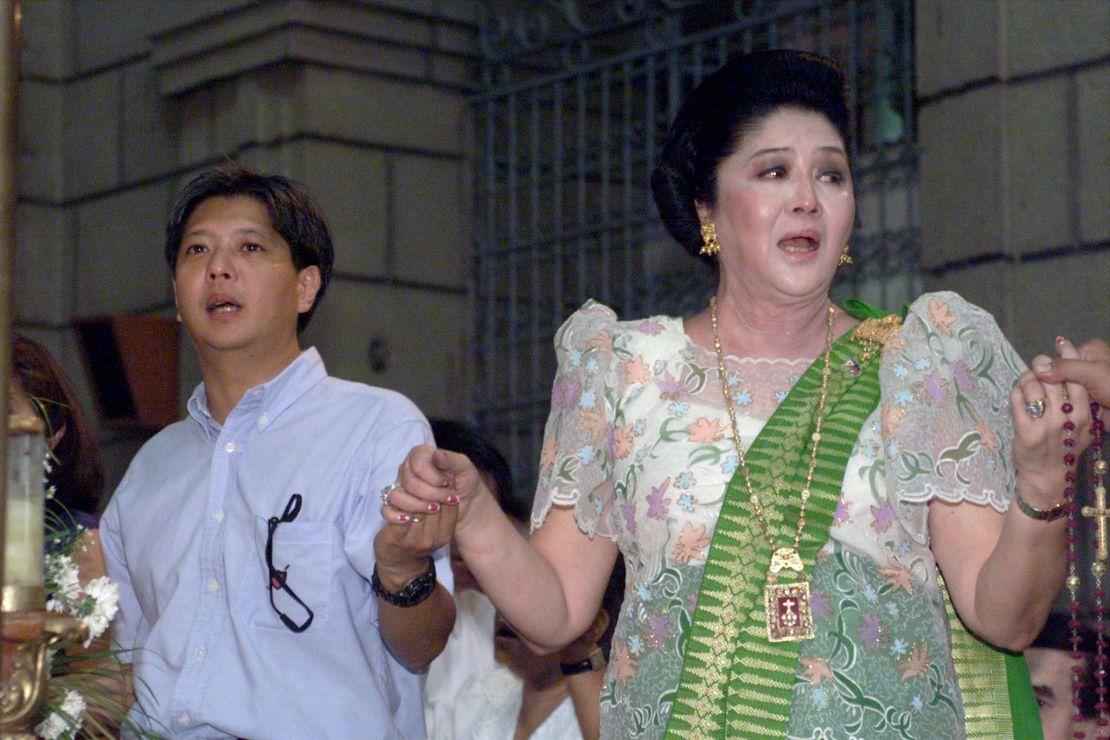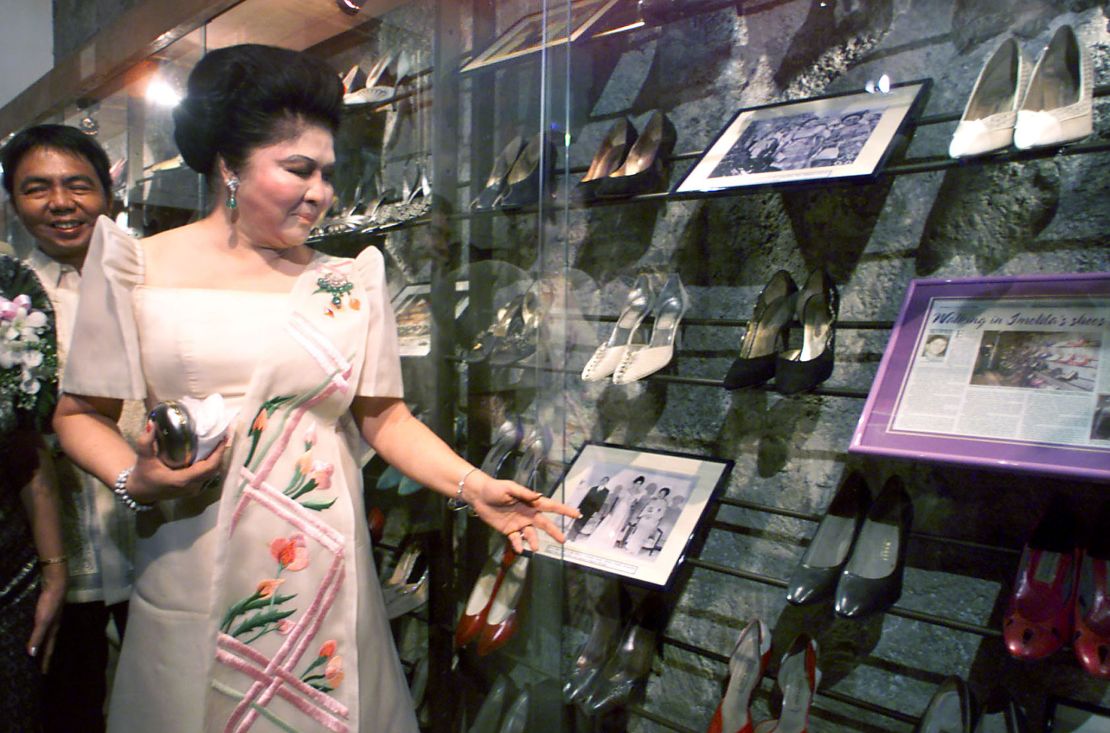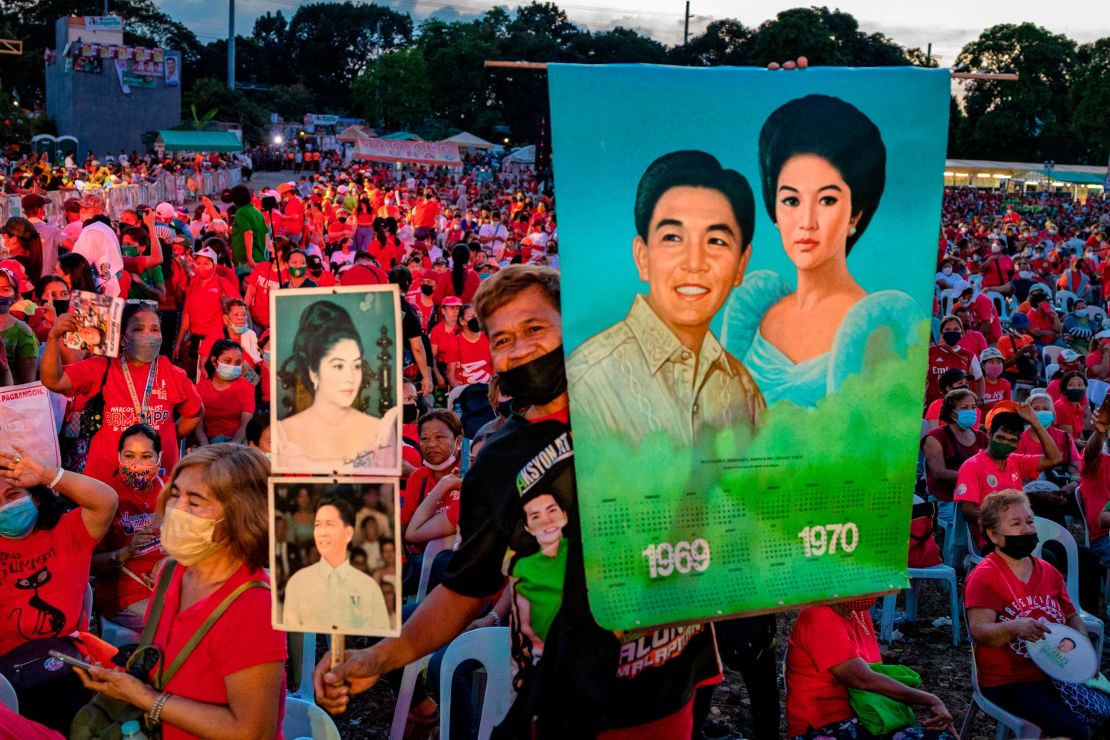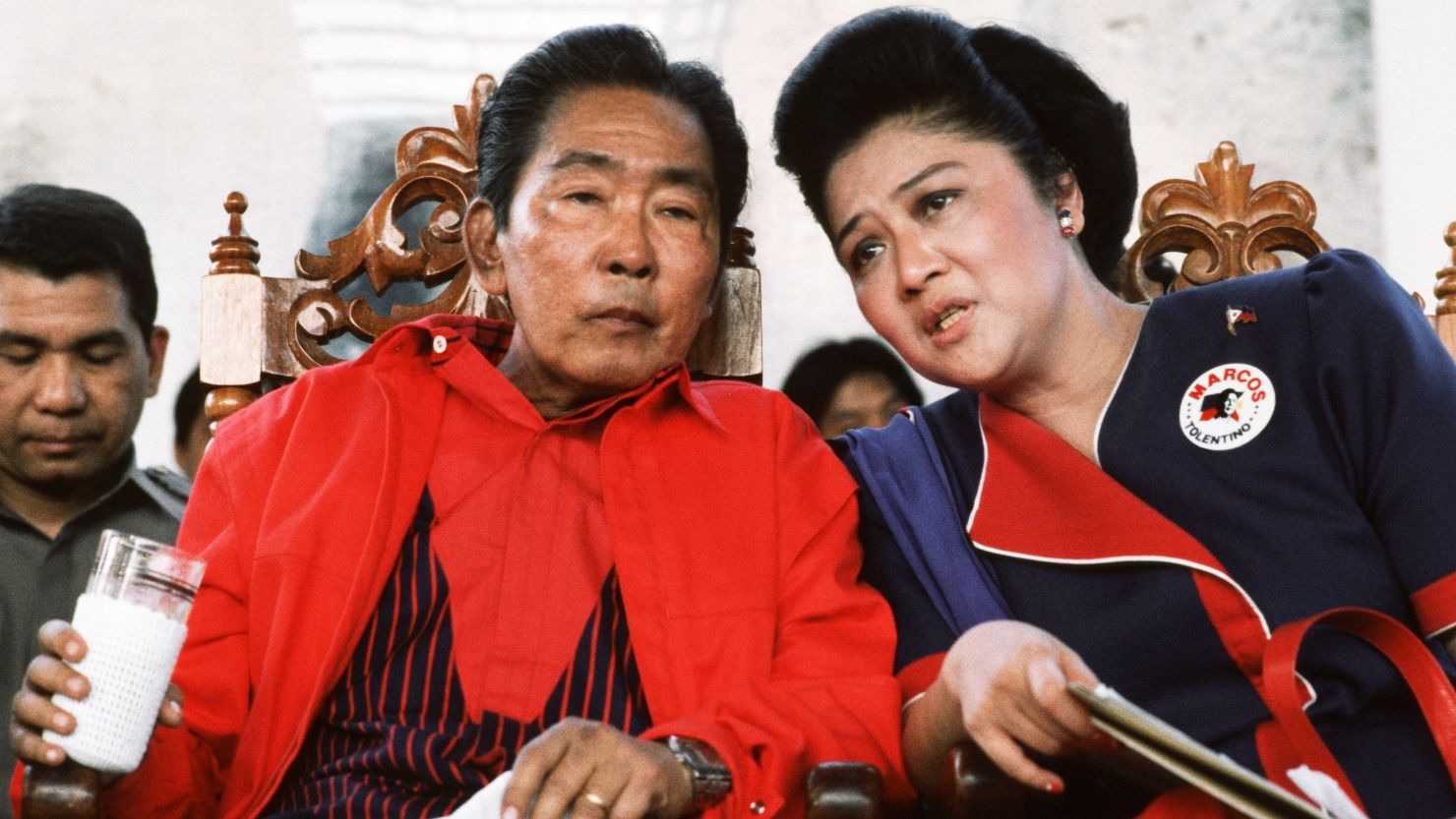Editor’s Note: David A. Andelman, a contributor to CNN, twice winner of the Deadline Club Award, is a chevalier of the French Legion of Honor, author of “A Red Line in the Sand: Diplomacy, Strategy, and the History of Wars That Might Still Happen” and blogs at Andelman Unleashed. He formerly was a correspondent for The New York Times and CBS News in Europe and Asia. The views expressed in this commentary are his own. View more opinion at CNN.
The Philippines is voting for a new president and the favorite to replace Rodrigo Duterte is Ferdinand Marcos Jr. – better known as “Bongbong.” He is the only son of Ferdinand and Imelda Marcos, the notorious dictators who looted the nation of billions of dollars, left a trail of torture and abuse of political opponents, and became internationally renowned for their extravagance and greed before being ousted in a bloody coup in 1986.
Even if most Filipinos alive today don’t remember what those days were like – half of the country’s population was under 8 years old when the Marcos parents were ousted – I certainly do. They were days of wine and roses and an all but unprecedented kleptocracy – many of Imelda’s infamous collection of 3,000 shoes, reportedly now sit in a Manila museum.
Stories of the Marcos family extravagance and corruption are legendary, and as a former reporter in the region I have my fair share. In October 1976, the IMF/World Bank held its annual meeting in Manila. To prepare, the Marcos’s engineered an all but unprecedented building boom – 14 new international-class hotels in barely as many months. At a ribbon-cutting ceremony for the 700-room Plaza Hotel, 2,000 guests were treated to tables groaning under hors d’oeuvres.

Friends and relatives of the family were in on ownership of these hotels, most built with government capital that was not going to the priorities of the Philippines’ most desperately impoverished.
Meanwhile the Philippines had been awarded a World Bank grant to rebuild parts of Manila’s nearby Tondo slum, one of the worst in Asia. These funds had disappeared – and Robert McNamara, former US Defense Secretary and then-head of the World Bank was coming to town.
Imelda, governor of metro Manila, simply ordered the slum demolished and paved over, with 60 families carted to some vacant land 20 miles outside the capital, where they’d been dumped in a large field.
I discovered the malevolent scheme. McNamara was furious, Imelda never forgave me. The day my story ran, I was sent off to cover a coup in Thailand, while thousands of Filipino families remained in limbo – some in other parts of Tondo, others far away in Manila’s outskirts. Today, Tondo remains one of the most impoverished slums in Asia. And young Marcos has said little during his campaign that suggests he will do much to change this, just one of so many toxic consequences of his parents’ rule.

Through it all, Bongbong had a pampered and gilded upbringing. Imelda – now 92 – still supports her son’s ambitions unswervingly, though lately quietly. Dindo Manhit, CEO of the Stratbase ADR Institute, a leading political think tank in the Philippines, told me that Imelda has “disappeared from public.”
Many people still believe the Marcos family cared for the common people. Bongbong is playing on this, loudly. And there are some experts who believe Imelda sees Bongbong putting an end to the continuing search for the vast funds they had purloined and the jail time that could still await her.
How is another Marcos even possible in this democracy that Filipinos have struggled to maintain, even back 40 years ago when I first began reporting on its politics as South East Asia bureau chief for the New York Times. The nation was formed in 1946 after independence from the United States which had freed it from brutal Japanese rule during the Second World War.
This time, at least, Bongbong and his crew seem to be taking some pages straight out of Donald Trump’s MAGA playbook. “It’s the rise of social media,” Manhit told me during our telephone conversation from Manila. “In the Philippines the second source of information – after television, more than any broadsheet newspaper, more than radio – is Facebook and YouTube,” he said.
“It’s one-way propaganda,” Manhit added, and whenever any media tries to paint Bongbong’s comments as outlandish, his supporters simply label this “fake news.” Sound familiar?
That the venal and violent years of Bongbong’s parents reign were anything but halcyon times filled with prosperity and law and order is simply shouted down as false.

Now, the next generation of the Marcos clan harps on vaguely, as Bongbong put it in an interview with CNN Philippines, about plans for achieving unity – “prices and jobs. Jobs, jobs, jobs. Prices, prices, prices.”
Bongbong has attempted to ensure that his family – which under parents Ferdinand and Imelda held sway for 21 brutal and corrupt years from 1965 through 1986 – will now return to power by tying himself closely to the still much-admired Duterte, tapping the president’s daughter Sarah as his vice presidential running mate.
And young Marcos has been doing his level best to rehabilitate the memory of his parents, describing his father as a “genius” in a CNN Philippines interview. This, despite the reality under martial law, imposed by Ferdinand Marcos in 1972, when tens of thousands of people were arrested and detained, and thousands of others tortured, forcibly disappeared and killed, according to Amnesty International.
Abroad, Marcos is seen as tilting toward China – his first visit after entering the race last fall was to its embassy. China continues to flex its muscles in the nearby South China Sea. Public opinion, which leans heavily toward the US and Australia, could act as a restraint, and indeed in some of his latest remarks, Bongbong seems to have tempered his public comments.
Some critical questions remain. How much of this tilt away from China is for show? But above all, would the Biden administration tolerate the same level of Marcos-like abuses or excesses as a succession of American presidents did during the two decades his parents were in power and that stretched through the Vietnam War era?
This allowed the US to maintain a major air base at Clark Field in the Philippines, where I covered the arrival of thousands of evacuees in the final days of the Vietnam War in 1975, and a naval facility at Subic Bay. American oversight of both facilities ended after the end of Marcos rule.
Today, the US has hitched its Asian strategic priorities to Australia, with billions of dollars in defense agreements. But a sympathetic Philippines government could be a most valuable asset in the region – provided the costs are not too high for either America or the Philippines people.
